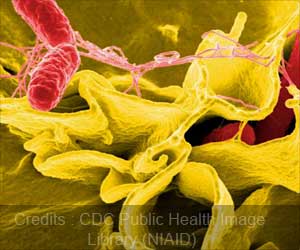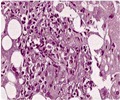In the US, extensively drug-resistant (XDR) typhoid fever has affected 70 patients after causing a large outbreak in Pakistan's Sindh province.

‘In the US, extensively drug-resistant (XDR) Typhi has affected 70 patients after causing a large outbreak in Pakistan's Sindh province. Drugs like azithromycin and carbapenem were effective against this new strain.’
Read More..




Louise Francois Watkins, MD, MPH, medical officer in the CDC's Enteric Diseases Epidemiology Branch said, “This marks the first time cases of ceftriaxone-resistant Typhi infections have been identified in the United States that don't appear to have been acquired during international travel.”Read More..
In the United States as of January 14 of this year, the CDC reported 71 accounts of XDR Typhi infection. Out of the 67 patients with known travel history, 58 patients had traveled to Pakistan in the 30 days before illness began, but the remaining another nine patients had not left the United States during that time.
Watkins said, “Because typhoid fever (the infection caused by the Salmonella Typhi bacterium) can cause severe illness and death if not treated, the emergence of antibiotic-resistant typhoid fever has become an increasing concern over the past decade.”
Siddhartha Thakur, DVM, PhD, a professor of molecular epidemiology at North Carolina State University in Raleigh said that typhi is more common in South Asian countries where it is most often spread through contaminated drinking water.
He added that Typhi cases in the US are rare as the drinking water is safe.
Advertisement
The CDC has not established any link among the patients or a common source of infection in the patients with no travel history who are living in six states- New York, California, Illinois, Maryland, New Jersey, and Texas.
Advertisement
Source-Medindia















